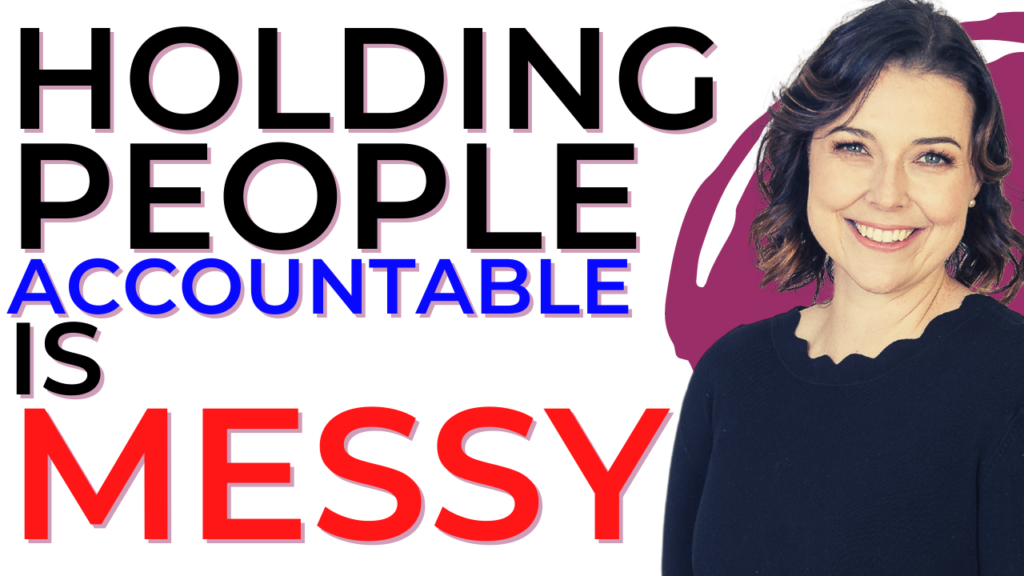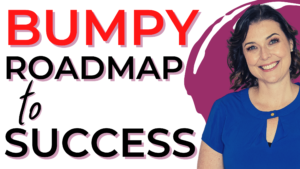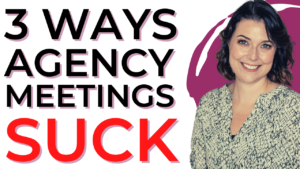Introduction
In almost every agency I have the blessing to walk into, there is always a common theme. The agency leadership team is frustrated because they tell agents what to do—but there is a gap in execution. They say the definition of insanity is doing the same thing over and over again and expecting a different result. This is what we do in agencies—we keep doing the same thing and nothing changes. Accountability has changed rapidly in the past few years as work culture and leadership styles have adjusted with the times. Twenty years ago, when I was starting my career, my mentor had some pretty direct conversations with me that might not fly in today’s world (which, by the way, I will forever be grateful for!). There is a clear way to hold your insurance team accountable, support a thriving culture, and reduce leadership team frustration, I promise! This is what we will break down in this blog and video series.

APP Update Section
Travel Dates (Week Before the Post):
Kelly: Tacoma, WA launching Agency Efficiency
Heath: Shreveport, LA launching Agency Retention
Top Challenges with Accountability
In many insurance agencies, leaders are operating out of a scarcity mindset, rather than an abundance mindset. Basically, this means leaders are operating from fear. We may be fearful that the culture is diminishing, fearful of losing agents, or have a general fear of a potentially difficult conversation (no one wants to hear they aren’t succeeding, right?). When accountability strategies are only practiced in extreme situations, (it can be like going to the principal’s office) it’s too dramatic. In this blog, we outline how to create a culture of accountability, rather than accountability only when there is a situation.
To master a culture of accountability, you must drive accountability consistently.
- Challenge #1: Access to Facts: If you have been following our content, you know we are big on the need for reporting in agencies. As you work to hold your insurance team accountable, you will need access to reporting. Reports don’t have feelings. Being able to display where someone is, their progress, and their success, is the definition of accountability. Also, reports and facts are more than just for insurance producers. We believe every role should have metrics associated with it. The receptionist can even have a goal to pick up within two rings—that’s a fact and a metric!
- Challenge #2: Fear of Someone Leaving and Difficulty Hiring: It’s no secret that finding great people is one of the top challenges in insurance. For many agencies, this presents an obstacle to truly holding the insurance team accountable. The fear is, if we push team members, they will depart. Your agency may already be short staffed, and keeping someone who is not a great fit is easier than truly holding people accountable. The reality is, this is operating from scarcity. As a leader, you should be consistently recruiting so you have a bench of candidates. In addition, lack of accountability may run off your top team members or push more work back on others. Lastly, without accountability of the struggling team member, you must realize that you aren’t doing them ANY favors. Avoiding their lack of performance won’t solve the problem.
- Challenge #3: Difficult Conversations are Difficult!: As human beings, our brains are designed to protect us. When we sense discomfort, our brain tries to keep us safe. This includes difficult conversations. Addressing someone’s lack of performance is not a pleasant conversation (for you or them!). We avoid the difficult conversation, find excuses, or worse, find a glimmer of hope that they are improving and we do not have to have the conversation. We should be having routine coaching conversations with every team member so it’s normal to have conversations on performance and development—rather than making everything a big conversation (like going to the principal’s office!)
- Challenge #4: The Agency Is Consistently Inconsistent: I have been in so many meetings where we discussed having an accountability conversation and we talked about all of the other times someone else had done the same thing and it seemed unfair to start the process of addressing the issue. We all have the right to begin consistently holding people accountable. If you want change, you must put all your energy into the future, not the past. The key is starting today. Accountability must be consistent!
- Challenge #5: We Look in the Mirror More than We Look at the Person: As a leader, we are consistently looking at what we can improve (that’s one attribute of great leaders!). However, this strength can be taken too far. When a team member is struggling and we are stuck looking at everything we could improve, we are having the conversation with the wrong person. You may be thinking, “well I could have had a follow-up meeting,” or maybe you think you weren’t clear enough last time you discussed it with the struggling team member. A great accountability plan has equal accountability between both parties. Remember, you cannot care more about a team member’s success than they do.
- Challenge #6: There is Favoritism in the Agency: When we conduct our Agency Assessment program with agencies, it’s very common that agency favoritism comes up as an issue. Agency favoritism is when there are some team members who seem to receive special treatment. Perhaps they are closer to the owner or leader and in some instances we look the other way regarding their performance-related issues. This cannot happen. Despite personal relationships, everyone needs a clear job description with metrics (which don’t have feelings), and you need to keep personal and professional relationships separate.
There are more than six hurdles to holding your insurance team accountable. In fact, I’m certain you have a few more you could add to this list. Let’s start the process of identifying how to convert your culture into a culture of accountability.
How to Build an Insurance Agency Culture of Accountability
Let’s start by painting a picture of an agency that needs accountability.
- Inconsistency in client and workload. The seasoned staff has an overly large book and the greener team doesn’t have a full book.
- Some team members take advantage of time off, work-from-home, or other agency benefits.
- Producer goals are not being met or reviewed.
- Commercial renewals are backlogged and fingers are pointed at why: Carrier delays, producer communication, and non-responding clients.
- The team stays in their comfort zone rather than embracing new technology or strategies.
- The agency does not discuss metrics, numbers, or insurance agency growth.
- Everyone seems to be in fire-fighting mode: Taking 911 calls rather than focusing on fire prevention.
- Morale is low and people are policing themselves according to their own value system (not the agency system).
Look at this list—do any of these challenges plague your agency or team? Then keep reading—we got you!
Check out our handy list of the top 10 Agency Challenges
Agency 10-Year Vision
Almost every business book discusses the need for a vision. A clear agency vision allows you to communicate where the business is going. As change is undertaken or accountability is put into practice, the “why” becomes clear. Without being able to tie changes to the vision, everything feels personal. You need to identify your 10-year vision and include it in every team meeting and team discussion. Your vision should be bold and direct (don’t make it vague). Make sure to have a launch party for your vision. When we conduct an agency assessment, we have a meeting, Agency 2.0, that is meant to be motivational and inspirational, but drive clear communication to everyone about what is happening and why—as well as allow the team to be part of the conversation. Once you have your 10-year vision, here are your next steps:
- Create posters and table tents for your team to have at their desks
- Have a monthly or quarterly meeting where you review your progress on the vision
- Break down a one-year strategy on how you will achieve this vision (10 baby steps will get you there)
- Alert the team annually to adjustments in the agency vision
The reality is, for most people in insurance, change is difficult. Being able to share proposed changes will allow you to get buy-in much faster. This gives your team time to digest and adjust expectations.

Clear Leadership Structure (With Appropriate Number of People to Manage)
To succeed, you need the correct leadership structure. In many agencies, there is too little leadership. The agency owner is the account manager, HR department, marketing department, finance department, top producer, and more. You cannot effectively manage your team toward accountability when you are wearing too many hats. The other issue we encounter is that leaders in the agency aren’t empowered to drive accountability due to fear. Everyone on the team deserves a leader who is invested in them and spending time with them for development. When agencies lead based on problems rather than development, the result is a lack of accountability. As we conduct our agency assessments, we often rebuild the agency’s leadership team for clarity and team development. Common roles we develop:
- Agency CEO: What should the top leader be focused on?
- Agency COO: How can you get a second-in-command who is here to fuel the agency’s execution?
- Team Leaders: For each team, can there be a point person for clear communication, review of metrics, and being the first level of accountability?
- Team Mentors: These are the original gangster workhorses of the agency who, as they become more tenured, can get burned out. The burnout is causing them to provide more challenges than solutions to the agency. When we can convert them to part-time and allow them to mentor the green team, things change. We slowly stage down their books and make a peaceful transition.
Your agency must clearly communicate who is in charge and often let go to allow for greater accountability.
“Our agency is blessed to have the combination of a veteran team and next generation youth. What we recognized was that the veteran team has an abundance of knowledge and deep relationships with our top clients—we wanted to protect the relationships for the long haul. The next generation is gaining experience every day, but they need the mentorship from veterans. The challenge was always how the veterans have time to help invest in the next generation. We created a plan to allow the veterans to reduce their workload in a three-year plan and allow them time to invest in the next generation. This also allowed our veteran team to be able to go down to a staged retirement of working less days per week. It was a win-win-win for everyone.”
Pat & JD Delmonico, Delmonico Insurance Agency
Agency Metrics
It’s amazing to me when we share metrics with a team how almost immediately we see a change. No one wants their name last on a leaderboard. Sharing reports with the team publicly changes things. Remember, numbers do not have feelings! You will get some excuses, but, by golly, you will see everyone embrace accurate use of the insurance agency management system! We just wrote a blog about the reports you should be running in your agency you can check out.
Sharing metrics accomplishes the following:
- Improved insurance agency management system use (people can see why to follow the process)
- Gut check: When you’re last, you don’t want to be there in the next report
- Consistency: You must share them consistently to see a change
- No one can hide
- We can celebrate success!
Forever Recruiting
Agencies must stop recruiting only when they need someone. Hiring out of desperation, not preparation leads to you making bad hires. The best people are not looking, you need to develop relationships. Also, you can always find room on the team for a rockstar! By the way, when your team sees a consistent flow of candidates interviewing, everyone steps up their game just a tad bit. This is a people business, which means a role of leadership must be to continuously find the top talent. If you need help recruiting, check out our course on How to Hire and Keep Top Talent in Your Agency (we give you everything you need to have a strong recruiting approach).
“The insurance industry provides an incredible amount of personal, financial, and entrepreneurial growth. Unlike almost every other profession in the world, insurance offers countless opportunities for individuals seeking both entrepreneurship and career stability. Products and coverages are continually adaptive in accordance with ever-changing geopolitical factors which keeps the industry new and relevant. Agencies are growing at incredible rates, both organically and through acquisition, and for some reason, the need for entry, junior, and senior-level talent are at all-time highs. For Millennials and Gen Z, there needs to be greater awareness surrounding this topic. When younger individuals ask me about insurance, I simply reply with a question, “What industries are of interest to you?” Whether it’s life sciences, financial institutions, or advanced manufacturing (for example), insurance allows people to become experts in verticals that are of interest to them, so that, in turn, they can provide risk management solutions to protect a company’s bottom line. It is an essential industry that makes the world go ‘round and it is now on us to generate more awareness of the life-changing opportunities insurance will provide.”
Anthony Tomasetta, CRIS, CLCS, President GT Staffing, LLC
Clear Insurance Agency Job Descriptions with Metrics
In order to hold your insurance team accountable, you must have clear documentation on what everyone is being held accountable for. Insurance agency job descriptions along with clear procedures help dramatically. Holding team members accountable to verbal communications leads to a world of excuses and miscommunication. Every role should have a job description with metrics included in the document. When there is an accountability issue, you can pull out the agency job description and metrics to have the conversation! Each team member should have a scorecard for their role that is reviewed in a monthly coaching meeting with the team member’s leader.
Insurance Agency Incentive Plan

I have seen so many insurance agency incentive plans that do not work. Every agency should have performance-based pay for every role. This is one of the areas that agencies always ask us about! Remember, there are eight ways to grow an agency. An incentive plan needs to cover all of them. Here are some common challenges we see with incentive plans:
- It’s all about new business (this is only one of eight ways to grow an agency), the team becomes new-business driven, and misses retention
- It’s not easy to track, so agents aren’t clear on how to win
- Updates are not reported routinely, so no one can get excited about the money
Our incentive plan is simple: we pay off the book of business report and distribute to everyone (except producers) 10 percent of insurance agency growth for the quarter. Our agency assessment clients receive a weekly dashboard from us so the team can see the bonus pool. Trust me, if that pool goes negative, everyone steps up their game!
Routine Team and Individual Meetings

Earlier on in this blog, we shared that one of the accountability challenges is the idea of being called into the principal’s office (no one wants that!). In agencies, we see either bad meetings (all about carrier updates), inconsistent meetings, or no meetings at all. All three have problems! We recommend the following meetings:
- Weekly 1:1 coaching meeting with each team member (With a clear agenda!)
- Weekly Leadership Meeting
- Bi-Weekly Department Meeting
- Monthly All-Hands-on-Deck Meeting
- Quarterly Offsite Meeting
You may be thinking, “That’s way too much!” But keep in mind, your people are your biggest line item on your P&L. When your team is your biggest asset, communicating clearly to them is part of managing your investment. Every meeting should include:
- 10-Year Vision Update
- Value Review
- Metrics Update
- Plan between now and the next meeting
- Insurance Agency Training Tip
Keep your carrier updates out of these meetings!
Conclusion
Accountability does not have to be scary or intimidating. Actually, it should feel natural and organic. Accountability is more of a culture than an event. It should be day to day and people should feel comfortable talking about winning and losing. When you embrace numbers, it’s amazing how much easier accountability is. We see a lot of agencies shy away from transparent numbers. I want to share with you—share the numbers. Yes, in the beginning, it may be difficult, and there may be questions—but the reality is: the truth will set you free!




